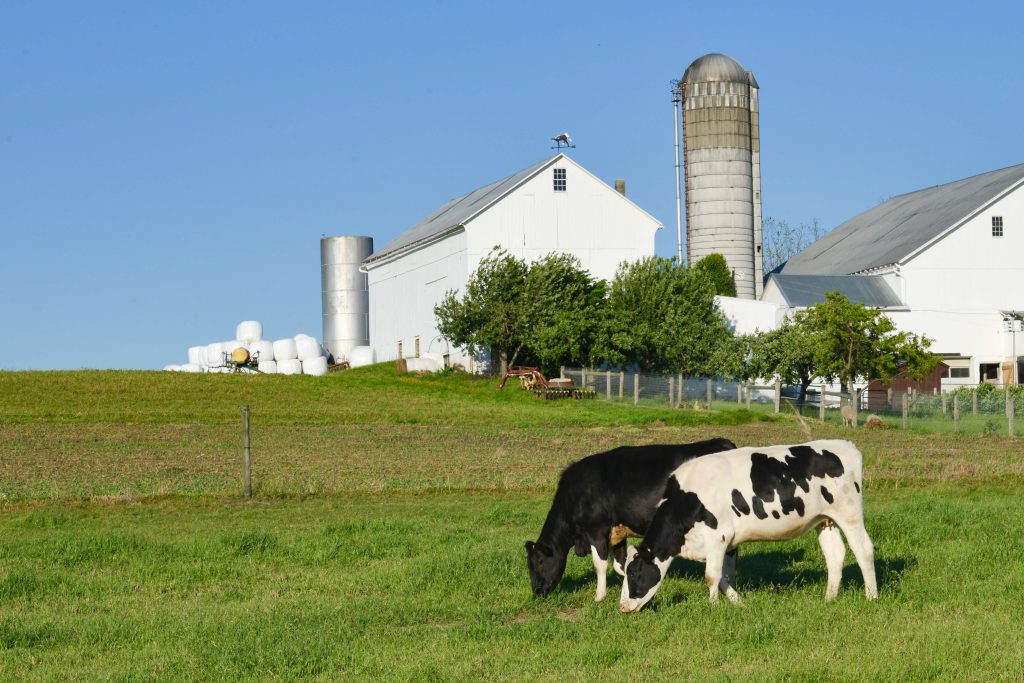Last week, the Federal Trade Commission (FTC) gave Americans across the country a reason to celebrate: The agency dealt a major blow to the proposed mega-merger between grocery giants Kroger and Albertsons by filing a lawsuit to block the deal. It’s clear that FTC’s lawsuit is a major win for workers and consumers — but while it’s less widely reported on, FTC’s lawsuit also has the potential to shield farmers from being further squeezed by retail market consolidation.
A combined Kroger-Albertsons would create the second-largest grocery chain in the United States, giving the combined company control of 15% of the national grocery market and drastically altering the structure of the entire industry. Kroger and Albertsons have even acknowledged they are direct competitors and that the acquisition would be anticompetitive, with one executive saying: “You are basically creating a monopoly in grocery with the merger.”
This mega-merger would be bad news for everyone except the companies’ shareholders. In its lawsuit, FTC details how the merger would harm workers: Whereas today, Kroger and Albertsons “compete aggressively” with each other for workers through collective bargaining negotiations with local unions, a merged Kroger-Albertsons would have increased leverage and would hamper workers’ ability to secure better wages and benefits. The lawsuit also cites antitrust concerns over higher prices for consumers and lower-quality products and services, noting that the merger would likely result in Americans paying “millions of dollars more for food and other essential household goods.”
A Merged Kroger-Albertsons Would Also Devastate Farmers and Ranchers
While it’s not mentioned in FTC’s complaint, we don’t want to lose sight of how detrimental this merger would be for America’s farmers and ranchers — and how big of a win FTC may secure for them.
The U.S. already has only a third of the grocery stores it did 25 years ago. As grocers consolidate, the number of purchasers decreases, and farmers are left with nowhere to sell their products.
Farmers often get paid less as a result of retail consolidation. As corporate retail behemoths have taken over, their ability to squeeze farmers and rake in massive profits has left farmers earning just 15 cents on every dollar consumers spend at the supermarket. A combined Kroger-Albertsons would crush any of the remaining competition over certain products that have been keeping prices fair for farmers.
For example, the Colorado Attorney General’s lawsuit highlights how farmers and consumers in the state currently benefit from the competition between Albertsons and Kroger over high-demand local produce: “Because the companies compete for local products, Colorado farmers and suppliers get fair prices for their goods…they can be assured of a fair price and avenues through which to sell their crops. It benefits consumers because they have access to great local product at low prices and a more robust supply chain.”
Lower prices aren’t the only threat farmers face when retailers merge. Mega-mergers often lead to a loss of contracts for smaller-scale producers. We’ve seen it happen before: When Albertsons acquired Safeway in 2015, Albertsons kept contracts only with its largest produce suppliers and dropped most of the smaller Safeway produce suppliers. A 2022 peer-reviewed study adds more evidence of these detrimental impacts, showing that retail mergers lead to negative consequences for specialty crop producers including uncertainty, lower prices, lost revenue, and higher transaction costs.
Vertical Integration Nation
A merged Kroger-Albertsons would also give rise to yet another powerful, vertically integrated retailer, yielding even more negative outcomes for farmers and ranchers. Like Walmart — which controls the largest share of the retail grocery market at more than 25% — Kroger and Albertsons are heavily vertically integrated, meaning they control several stages along the supply chain for products in their stores.
Decades of evidence show that this vertical integration and extreme consolidation negatively impact farmers and ranchers. For example, when Walmart decided to own and control its own dairy supply instead of purchasing through Dean Foods, it dropped Dean Foods — and Dean Foods promptly canceled more than 100 contracts with dairy farmers across eight states. Within two years, Dean Foods was bankrupt. When large processors like Dean Foods go under, farmers and producers are the ones who suffer.
Impacts of a Combined Kroger-Albertsons on Dairy Farmers
Just like Walmart, Kroger and Albertsons have invested heavily in establishing their own milk processing facilities: Kroger processes about 90% of all the milk sold in its stores. A combined Kroger-Albertsons processing would have enormous reach and market power, and more processors would likely fold.
A successful merger between the two companies would leave dairy farmers with fewer places to sell their milk, and grant Kroger-Albertsons with untold power to command lower prices. As a result, independent producers would inevitably be forced out of business. On the heels of the 2022 Agriculture Census showing an alarming loss of dairy farmers — 34% have gone out of business since 2017 — we can’t afford to further impede competition in the dairy industry.
FTC’s Lawsuit Is a Major Win for Everyday Americans
A combined Kroger-Albertsons would have catastrophic impacts across our entire food system — from decreasing the number of purchasers for farmers to sell to, harming workers, and increasing prices for consumers. We applaud FTC for taking this critical step to prevent further consolidation in our food system and will continue our work opposing this mega-merger.
Written and edited by: Jessica Cusworth, Dee Laninga, Christian Lovell, Angela Huffman, and Joe Maxwell



